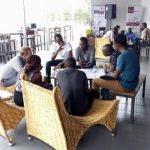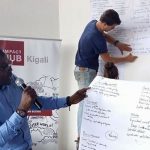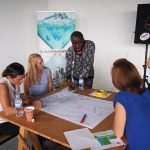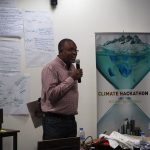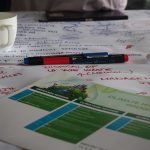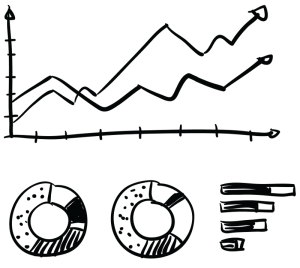WWF’s Earth Hour City Challenge with Impact Hub Kigali
The first climate hackathon in Rwanda demonstrates the innovative solutions generated when convening the stakeholders who are usually tackling climate challenges in isolation.
How did the collaboration begin?
The event was part of WWF’s Earth Hour City Challenge – a WWF competition on cities’ policies for sustainability to reduce carbon emission by promoting renewable energy. Although WWF doesn’t have an office in Kigali, it is a leading city in East Africa when it comes to sustainable city planning and needed to be included. WWF Regional Office in Africa, Impact Hub Kigali and ICLEI thus agreed to jointly run a Climate Hackathon (Climathon) as a part of the Earth Hour City Challenge.
What was the approach of the event?
Together more than 40 climate advocates, entrepreneurs, economists, NGOs, digital innovators and environmental experts, representatives from WWF, Impact Hub and ICLEI addressed the question: how do we create innovative and sustainable solutions to climate-related challenges affecting communities and cities in Rwanda and across Africa?
The 24-hour challenge was set up as a brainstorming exercise including key note speakers and group work aimed to use creativity, teamwork and cross-sector collaboration to come up with tangible projects and business ideas that have the potential to tackle climate-related challenges in the field of food, water and energy as well as urban mobility. At the end of the day, six groups of participants pitched their innovative solutions – ranging from electronic waste management, sustainable cooking stoves, turning waste into energy and setting up composting systems in schools.
What did WWF and Impact Hub bring to the table?
The overall method of the event came from the WWF team but Impact Hub developed this method further into a unique, day-long hackathon. Two representatives from WWF in Zambia and Uganda travelled to Kigali and one of them gave a keynote speech to set the frame for the event through his knowledge. The Impact Hub team designed the workshop to make sure it fit to the local content and led the facilitation. Additionally, Impact Hub selected and invited relevant participants for the event from their local networks, provided their inspiring space to set the frame for a productive hackathon, and took care of the event promotion and logistics.
What were the outcomes of the event?
- Awareness – the event created a foundation for strengthening the Earth Hour City Challenge, the #WeLoveCities campaign and other WWF projects in Rwanda and generated press attention to the work of WWF in the region.
- Solutions – from the ideas presented at the event the team with the most innovative and promising solution won a one year membership at Impact Hub to continue developing their project and turn it into a tangible solution to make Kigali an even greener city.
- Advocacy – overall, the event contributed to underline the importance of integrating climate and environment considerations in city planning.
- Connections – the event brought together key actors such as the ministry of infrastructure, UNDP, Novel Energy, University of Rwanda, FONERWA, Rwanda’s Green Fund, the city of Kigali, REMA.
“Kigali is a pioneer in Africa when it comes to sustainable city planning, so we asked Impact Hub Kigali to create this event with us so we can have a chance to learn from people and institutions in Kigali, brainstorm, generate new ideas and come up with projects and practical solutions to climate-driven challenges that can be implemented in Kigali, Lusaka and all over Africa. It’s been a fantastic day and we are excited to come back to Kigali with a larger group to continue the work”
Bwendo Kabanda, WWF Zambia
“(…) Sustainable solutions start as ideas like the ones we’ve seen here today. They are transforming Rwanda into a sustainable and green place that we can be proud of”
Alex Mulisa, Coordinator for Rwanda’s Green Fund FONERWA


